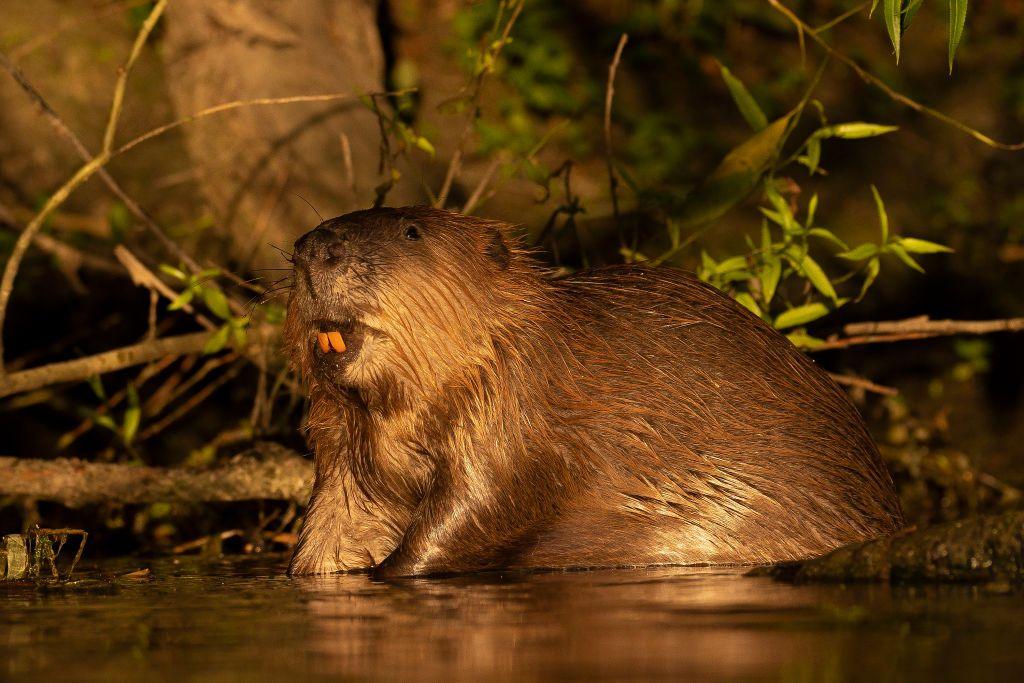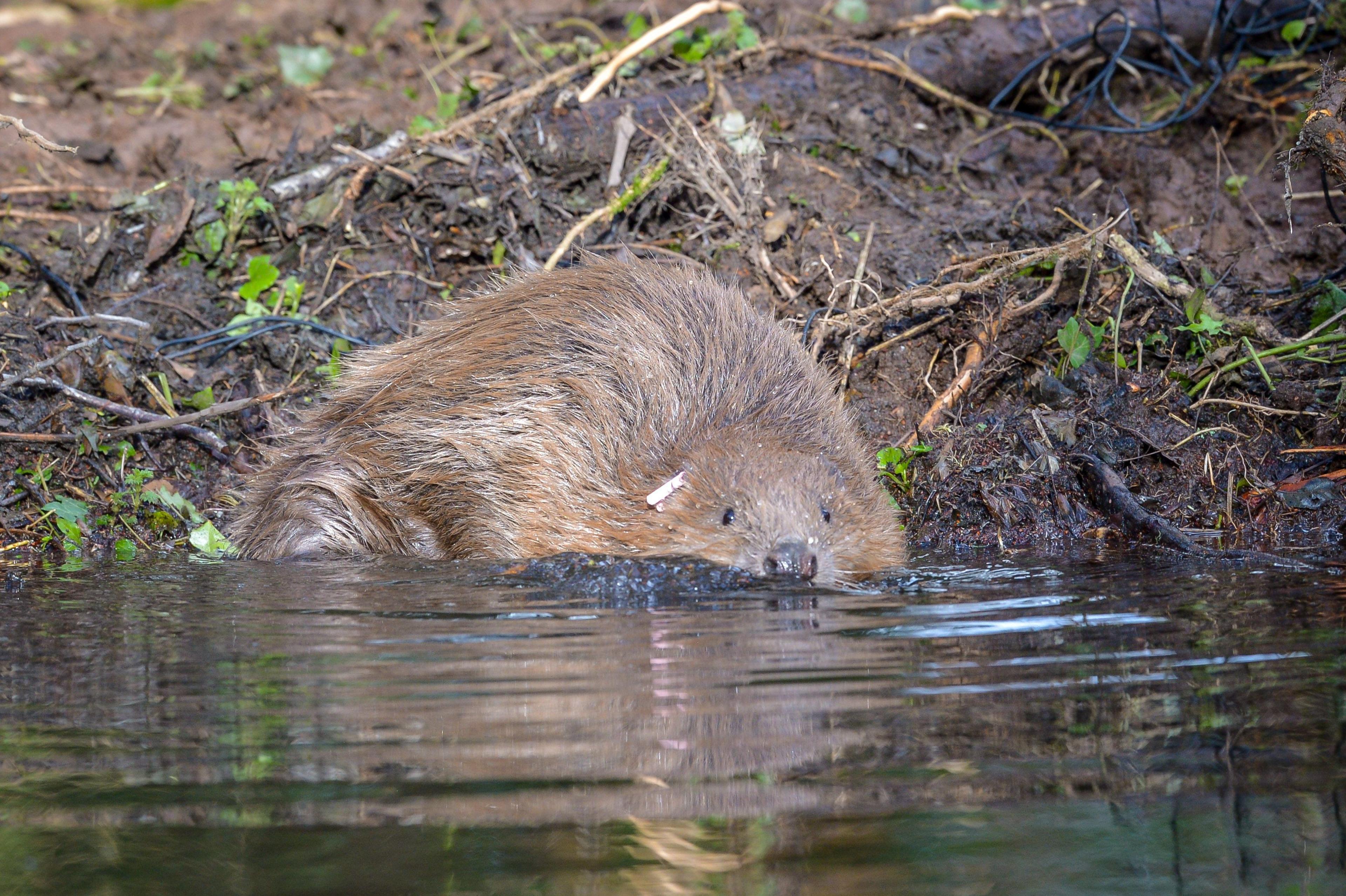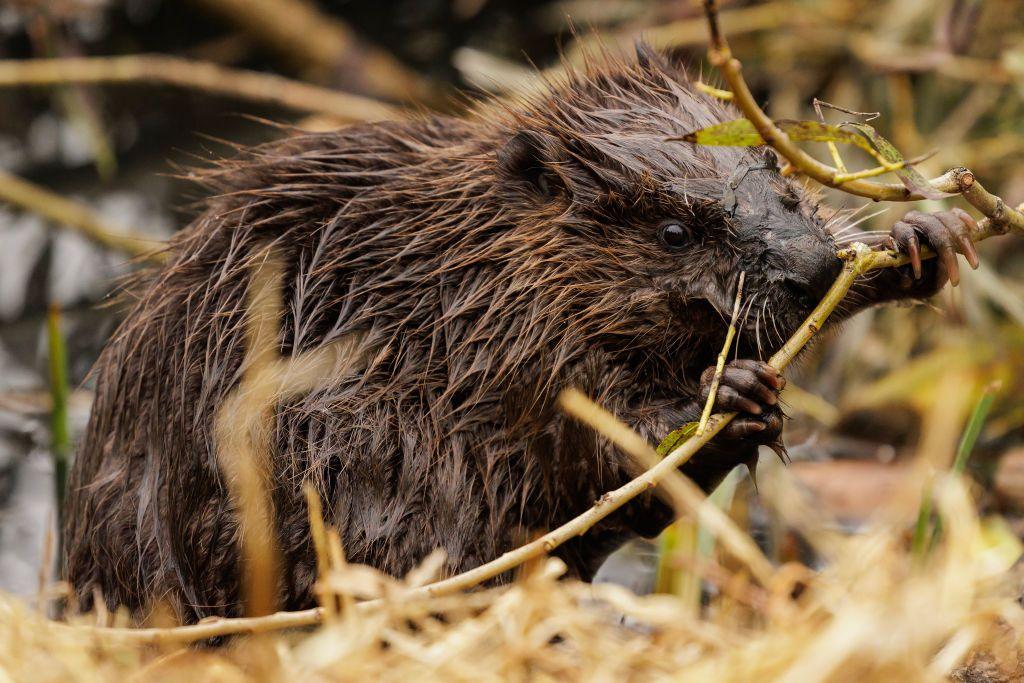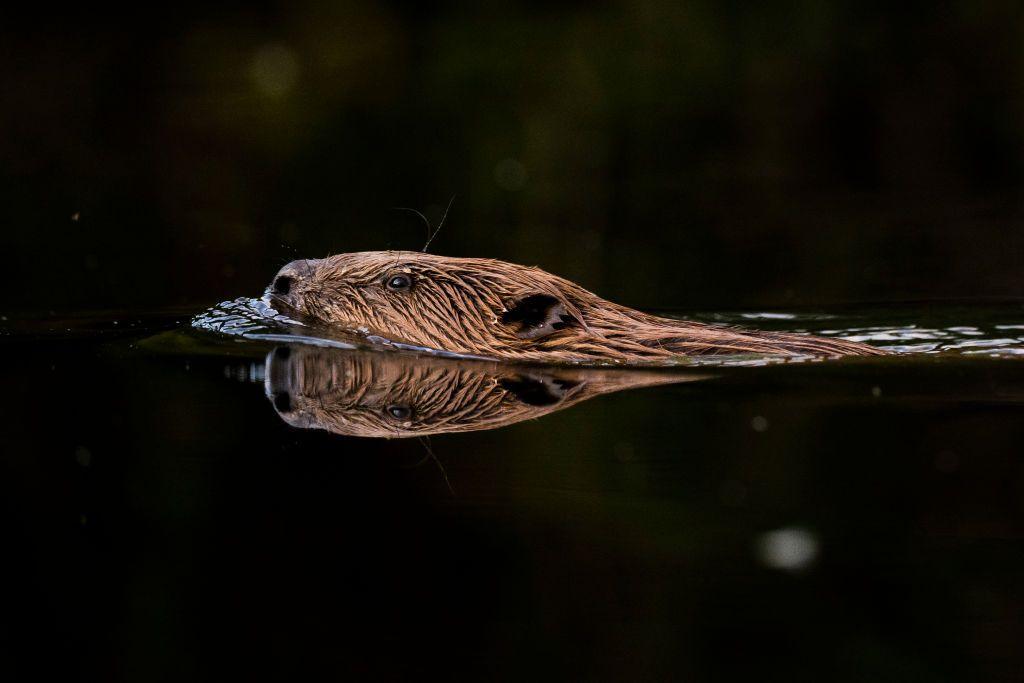Beavers should live in the wild in England and Wales, say charities

Charities are calling for beavers to return to the wild
- Published
Wild beavers are needed to tackle climate change and restore the natural world, wildlife experts have said.
The Wildlife Trusts published a report on Thursday calling for the mammals to be released into the wild and not only into fenced enclosures in England and Wales.
The organisation, which is made up of 46 wildlife conservation charities, is also calling for government funding to support the return of the animals to their natural habitats.
But the reintroduction of beavers into the wild in England and Wales has been seen by some as an unnecessary move, and in 2023 the Conservative government said it was "not a priority".
More on beavers
Beaver release going swimmingly in Northumberland
- Published12 July 2024
Beaver families return to England after 400 years away
- Published1 October 2021
Baby beavers born in west London for first time in 400 years
- Published14 August 2024
Why are beavers important?

Beavers are a keystone species which play an important role in their habitats
Beavers are seen as a "keystone species" by many conservationists.
This term describes any living thing which is essential to keeping the world around them working and thriving as it should.
The Wildlife Trusts say scientific studies show beavers play a vital role in their natural environment by managing rivers and wetlands by cutting parts off trees and building dams.
Not only can this improve water quality, it can also help store carbon, helping to slow climate change.
Beavers are a cheaper alternative to other water management options, say the trusts, who also suggest they can boost local economies through tourism.
Why do beavers need protecting in the wild?

Beavers were hunted to extinction in Britain in the 16th century for their fur and meat.
They can now be found in the wild, living on a number of rivers in Scotland and England, through both official trials which has led to their release, and also illegal releases or escapes.
They have also been introduced into specific enclosures in a number of English counties.
The Wildlife Trusts are now calling for the Labour governments in both England and Wales to help support the reintroduction of the animals into the wild.

Beavers build dams which can help stabilise water flows during drought and floods
There are some concerns surrounding the return of beavers in the wild including beaver dams blocking the migration of fish and the impact on surrounding habitats.
Mark Owen, Head of Freshwater at the Angling Trust, shared concerns of the impact wild beavers would have on salmon - another protected species - following a report by the Angling Trust in 2021.
"In the wrong place, the risk is that the presence of beavers could be detrimental to salmon and other fish species," he said.
However, the Wildlife Trusts say some of the problems can be either avoided or resolved through response teams.
Rob Stoneman who is the director of landscape recovery at The Wildlife Trusts, said there is a lot of evidence to show the "benefits" of reintroducing beavers to the wild.
"Given the climate and nature crises, we need beavers back in the wild to give us a hand to resolve these challenges," he said.
The government has responded to the calls from the Wildlife Trusts following the release of the organisation's new research, saying they were "absolutely committed to restoring and protecting nature", as well as supporting the reintroduction of species "where there are clear benefits".
"We will continue to work with Natural England to develop our approach to beaver reintroductions in England," said a Defra spokesperson.
More of the latest stories
- Published28 August 2024

- Published28 August 2024

- Published28 August 2024

